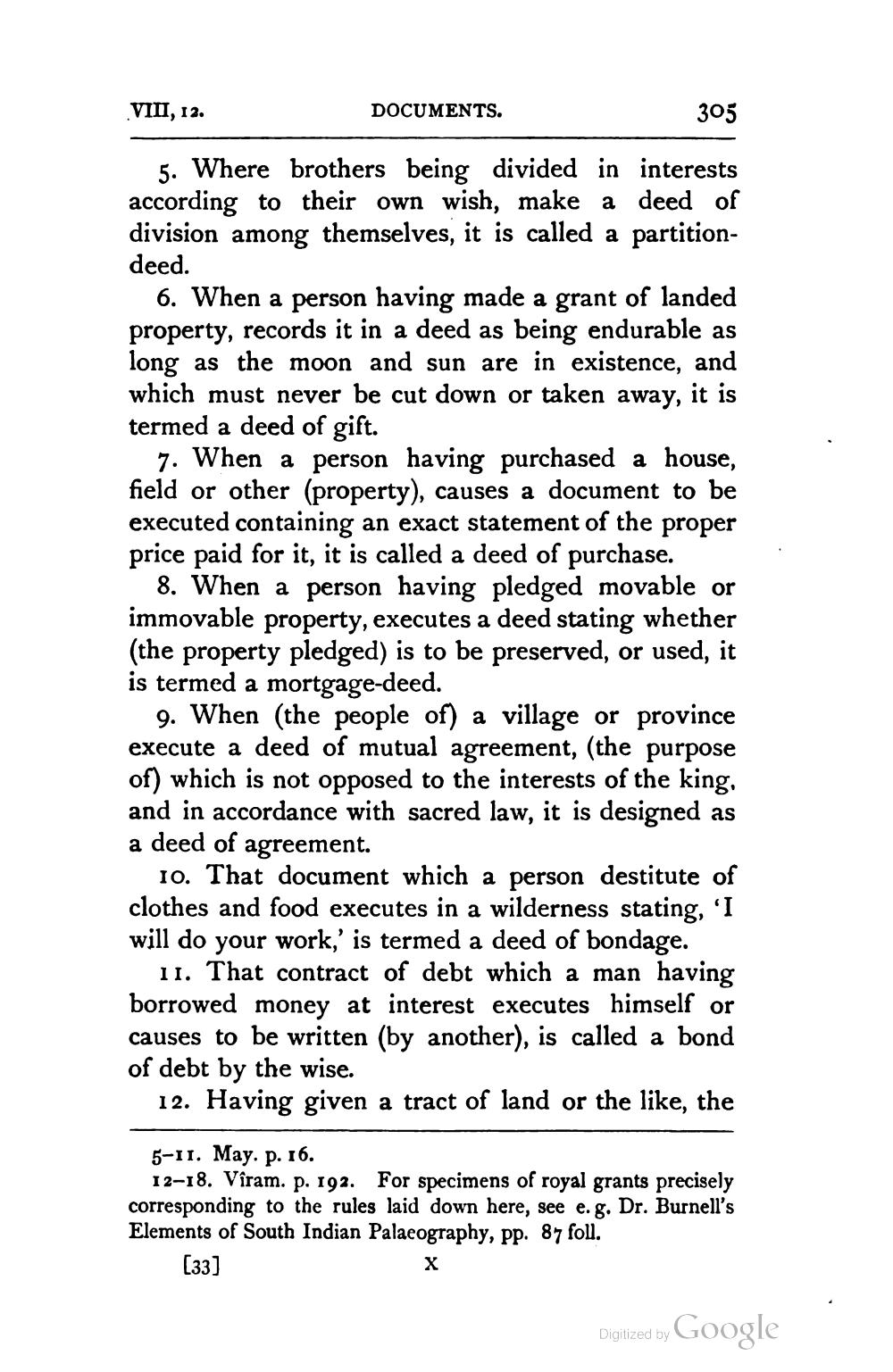________________
VIII, 12.
DOCUMENTS.
305
5. Where brothers being divided in interests according to their own wish, make a deed of division among themselves, it is called a partitiondeed.
6. When a person having made a grant of landed property, records it in a deed as being endurable as long as the moon and sun are in existence, and which must never be cut down or taken away, it is termed a deed of gift.
7. When a person having purchased a house, field or other property), causes a document to be executed containing an exact statement of the proper price paid for it, it is called a deed of purchase.
8. When a person having pledged movable or immovable property, executes a deed stating whether (the property pledged) is to be preserved, or used, it is termed a mortgage-deed.
9. When (the people of) a village or province execute a deed of mutual agreement, (the purpose of) which is not opposed to the interests of the king, and in accordance with sacred law, it is designed as a deed of agreement.
10. That document which a person destitute of clothes and food executes in a wilderness stating, 'I will do your work,' is termed a deed of bondage.
11. That contract of debt which a man having borrowed money at interest executes himself or causes to be written (by another), is called a bond of debt by the wise.
12. Having given a tract of land or the like, the
5-11. May. p. 16.
12-18. Vîram. p. 192. For specimens of royal grants precisely corresponding to the rules laid down here, see e. g. Dr. Burnell's Elements of South Indian Palacography, pp. 87 foll.
[33]
Digitized by Google




